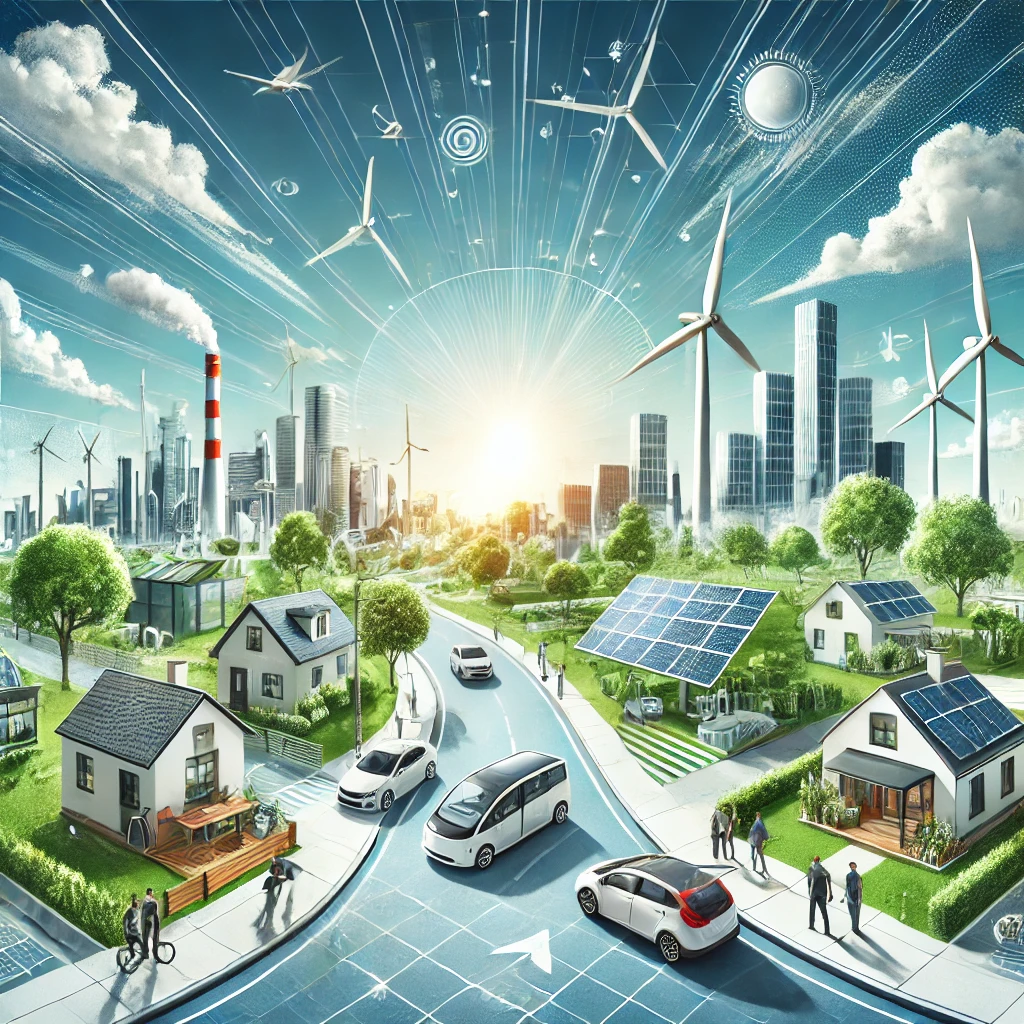
How Sustainable Technologies Are Improving Everyday Life
The Power of Sustainable Technologies
Sustainable technologies are transforming the way we live, work, and interact with the world around us. These innovations aim to reduce environmental impact while improving efficiency, convenience, and quality of life. In this article, we'll explore some of the latest innovations, from AI tools to smart home gadgets, IoT, and 5G devices, that are making our everyday lives more sustainable and connected.
The Latest Innovations in AI and Their Real-Life Applications
Artificial Intelligence (AI) is not just a buzzword anymore; it's becoming a pivotal part of our daily routines. From AI-driven assistants like Siri and Alexa to more complex AI systems helping us in healthcare, AI is revolutionizing how we solve problems and enhance our efficiency. These tools are helping save energy, improve productivity, and reduce waste.
AI for Energy Management
One of the most impactful applications of AI is in managing energy use. Smart thermostats powered by AI learn your habits and adjust the temperature accordingly, saving both energy and money. Imagine coming home to a perfectly warm or cool house without having to fiddle with your thermostat every time. AI can also help optimize energy use in industries, reducing carbon footprints.
Best Smart Home Gadgets to Simplify Your Life
Smart home technologies are rapidly evolving, offering more convenience, security, and energy savings. Let's dive into some of the best gadgets that can make your life simpler and more sustainable.
Smart Thermostats
Thermostats like the Nest Learning Thermostat are great examples of smart home gadgets that help reduce energy consumption. By learning your preferences and adjusting the temperature based on your habits, these devices ensure your home stays comfortable while minimizing energy waste.
Smart Lighting
Smart bulbs such as Philips Hue allow you to control the brightness, color, and timing of your lights, helping you save energy and set the perfect ambiance. These bulbs also integrate with voice assistants like Alexa, making them easy to manage from anywhere.
How IoT is Revolutionizing Industries
The Internet of Things (IoT) is connecting devices in ways we never thought possible. IoT is improving everything from agriculture to manufacturing, creating smarter cities and reducing waste. But how does it work in the real world?
IoT in Smart Agriculture
Farmers now use IoT sensors to monitor soil conditions, weather patterns, and crop health in real time. This data allows for more precise irrigation, fertilization, and harvesting practices, resulting in higher yields and reduced resource usage.
Smart Cities Powered by IoT
In urban areas, IoT is being used to monitor traffic patterns, manage waste, and even reduce energy consumption in public spaces. Smart streetlights, for instance, adjust their brightness based on the surrounding environment, cutting down on unnecessary energy use.
Top 5G-Enabled Devices You Need to Know About
5G technology is the next big thing, and it's poised to change the world as we know it. With faster speeds and lower latency, 5G offers numerous benefits for both consumers and industries. Here's a look at the top 5G-enabled devices that will enhance your daily life.
5G Smartphones
Leading the charge are 5G-enabled smartphones like the iPhone 12 and Samsung Galaxy S21. These devices offer lightning-fast internet speeds, allowing you to stream high-definition content, download large files, and game online with almost zero lag.
5G Routers and Wi-Fi Devices
5G routers provide faster and more stable internet connections for your home or business, enabling you to work, stream, and communicate without interruptions. With the power of 5G, remote work becomes even easier and more reliable.
Practical Uses of Sustainable Technologies in Everyday Life
Sustainable technologies aren't just for large corporations or cutting-edge labs—they can be integrated into our everyday lives to reduce our environmental footprint. Let's look at how we can apply sustainable technologies in our homes and communities.
Electric Vehicles (EVs)
Electric vehicles, like those from Tesla or the Chevy Bolt, are gaining popularity due to their lower environmental impact compared to traditional gas-powered cars. EVs reduce greenhouse gas emissions, help decrease dependence on fossil fuels, and offer a quiet, smooth driving experience.
Solar-Powered Appliances
Solar energy is becoming more accessible, with appliances like solar-powered chargers and lights allowing us to tap into renewable energy. Whether you're charging your phone on a sunny day or illuminating your garden at night, these solar-powered devices help reduce your carbon footprint.
Conclusion
Sustainable technologies are more than just a trend; they're a movement that is shaping our future. From AI to 5G, the innovations of today are making our lives smarter, more efficient, and kinder to the environment. By adopting these technologies, we're not only improving our daily routines but also contributing to a greener, more sustainable world.
FAQs
1. How do AI tools help in daily life?
AI tools assist in a variety of ways, from managing energy consumption to enhancing productivity in the workplace. Virtual assistants, smart home devices, and even personalized recommendations on streaming services all rely on AI to make life easier.
2. What are some examples of sustainable technologies in the home?
Some examples include smart thermostats, energy-efficient appliances, solar panels, and electric vehicles. These technologies help reduce energy consumption and minimize environmental impact.
3. How does IoT impact industries?
IoT connects devices across various industries, allowing for real-time data collection and more efficient operations. It is transforming agriculture, manufacturing, healthcare, and even urban planning by providing insights that improve decision-making and reduce waste.
4. What are the benefits of 5G technology?
5G technology offers faster internet speeds, lower latency, and the ability to connect more devices simultaneously. It enhances remote work, gaming, streaming, and enables the future of smart cities and autonomous vehicles.
5. Can sustainable technologies help reduce global carbon emissions?
Yes! By adopting renewable energy sources, electric vehicles, and energy-efficient devices, we can significantly lower carbon emissions and help combat climate change.